Survey examines solar’s strong connection to electric vehicles
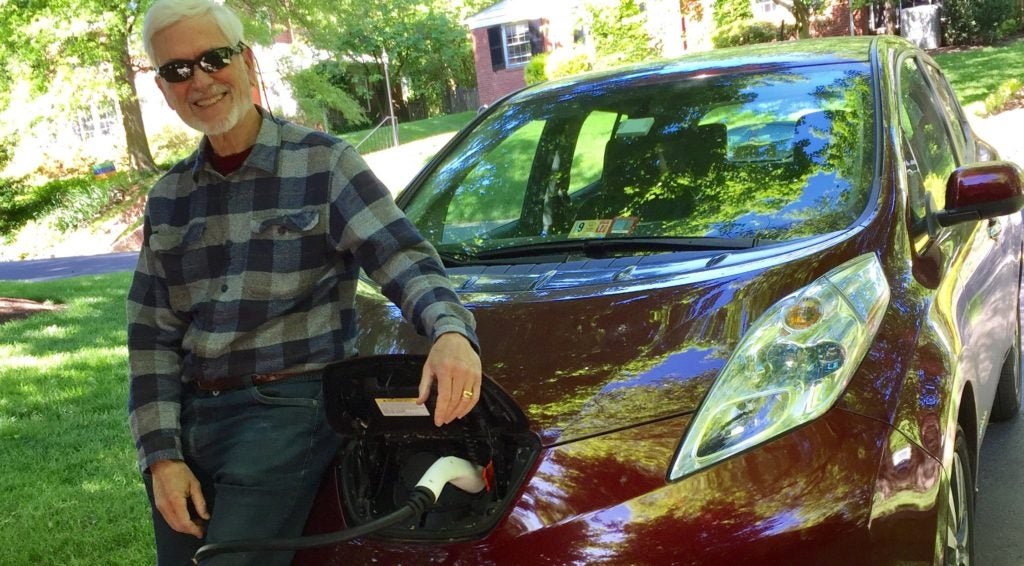
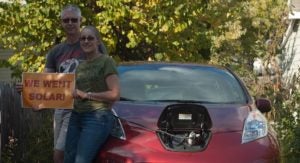 Electric vehicles are a key element of the transition to a clean, inclusive, equitable energy system. The increased adoption of electric vehicles (EVs) complements and magnifies the environmental benefits and market-integration potential of distributed solar, and vice versa. With the combined benefits of solar and EVs in mind, we crafted a survey to our network to better understand the EV landscape of our community.
Electric vehicles are a key element of the transition to a clean, inclusive, equitable energy system. The increased adoption of electric vehicles (EVs) complements and magnifies the environmental benefits and market-integration potential of distributed solar, and vice versa. With the combined benefits of solar and EVs in mind, we crafted a survey to our network to better understand the EV landscape of our community.
The survey asked simple questions about ownership of solar, EVs, and EV chargers, as well as deeper questions on the EV market and consumer needs. For survey takers who owned EVs, we asked about what information or services would make owning an EV better. For those who did not own an EV, we asked about what would be most helpful in encouraging them to purchase one. We sent this survey to 23,000 individuals, of which 2,147 (9.3%) completed it. Based on this sample size, we have a 95% confidence level in our results with a 2% margin of error.
Survey results
To better understand the relationship between EV ownership and solar ownership within our network, we compared the prevalence of EV ownership between solar owners and non-solar owners. We found that individuals in our survey who owned solar were 66% more likely to own an electric vehicle: 18% of non-solar owners had an EV vs. 30% of solar owners had an EV (Figure 1).
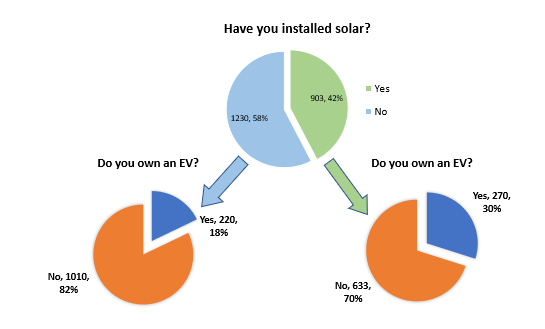
To learn more about consumer needs and identify the most effective avenues for intervention, we wanted to know 1) What barriers people saw to purchasing an EV and 2) What current EV owners thought would make their experience better. Both groups overwhelmingly identified fast charging infrastructure as the most impactful factor among the options provided, which included access to HOV lanes and reserved parking, special electricity rates, more information, and discounts. See Figure 2 for a full breakdown of the responses.
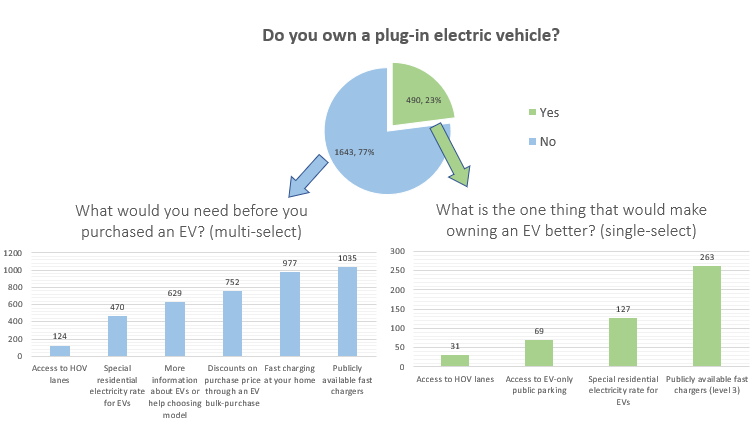
We also wanted to know about the prevalence of Level II chargers. Our survey found that only half of EV-owners have a Level II charger in their home (Figure 3).
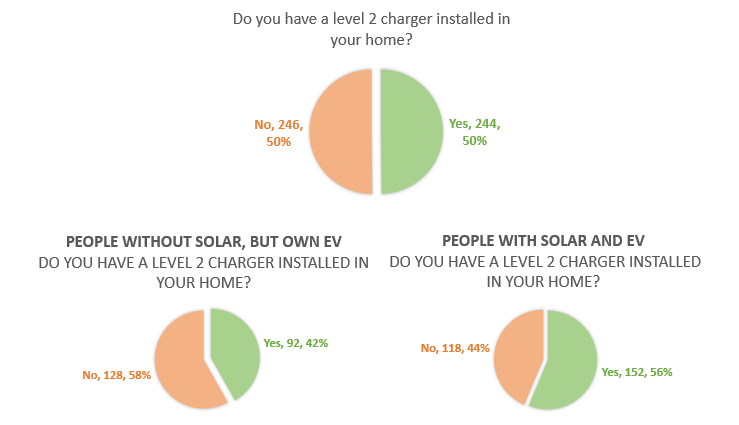
We were pleased with the high response and completion rate this survey achieved. We believe it offers several important considerations, but we recognize that it is limited. The Solar United Neighbors community is much more engaged in clean energy topics that the general U.S. population. Nearly 25% of our survey respondents own an electric vehicle, while the national ownership rate for battery electric and plug-in hybrid vehicles combined is less than 1%. So, the results may not be applicable to other populations.
We identified several striking conclusions from the survey. First, our network has a much higher EV ownership rate than we anticipated. Second, we were encouraged to see that the majority of survey respondents expressed interest in more robust electric vehicle charging infrastructure, regardless of whether they already owned an EV. Further, only 50% of those that own a plug-in electric vehicle have installed a level II charger at home.
Using solar as a clean ‘fuel’ for EVs has the potential to dramatically decarbonize the transportation sector. The improvements to battery technology made in conjunction with EV deployment will unlock battery storage as a tool to advance renewable energy, especially solar, integration across a variety of applications. EVs, being essentially batteries on wheels, will hasten the adoption of a more decentralized and interactive electric grid with the potential for two-way flows of electricity and increased consumer participation. Our survey demonstrates the market is ready for this to happen.
